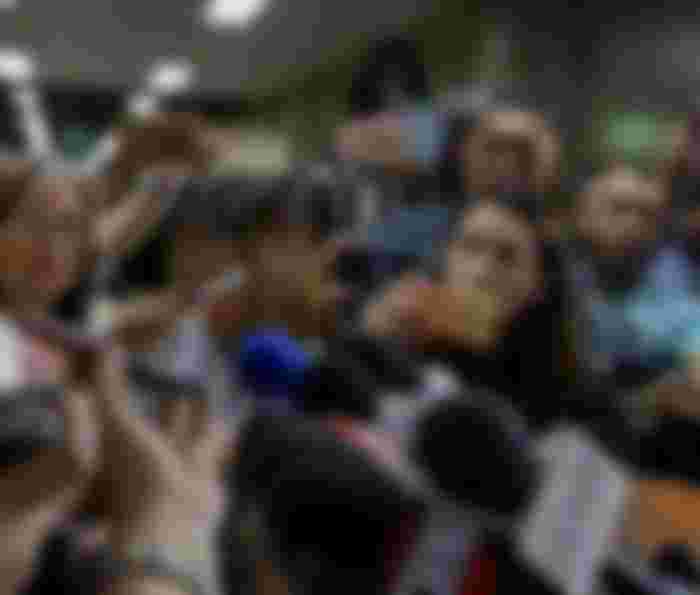When I was accepted as a reporter/journalist, I knew there was much to learn beyond writing. I had to know what to write, and where to get the information that would go into each news report.
Reporters are assigned to beats. For newbies or greenhorns, it is the police beat where you follow events or happenings in a community with the police as your source.
It's the beat that is supposed to sharpen your instincts and teach you to develop a nose for news. Every reporter has a daily quota - at least one story for attendance since not everyone has the luxury of going back to the office to write there.
If you don't go sniffing around police precincts or develop sources, you're going to be hard-pressed to come up with an article to submit.
Challenging beats
For reasons I never found out, I skipped the police beat. Instead, I was assigned the Elliptical Circle beat, which was comprised of the Departments of Agrarian Reform, Agriculture and Environment and Natural Resources. I'd much rather have the police beat, honestly. Those are almost dead beats. Unless you've cultivated sources, the chances of getting a decent story every day is so small.
Oh, there would be press conferences or briefings sometime in the week, but if you have very little inside knowledge about matters pertaining to agriculture and environment, it can be frustrating.
I survived two months in that beat. And I can't even recall what stories I turned in. Newspapers then have limited space for stories, because ads are given priority. They are, after all, the source of income for a business. So, I never expected my stories to be published daily.
New assignment
Enter the new year and the editor throws me another curve ball. I would be re-assigned to a new beat. Malacañang. Say what? Cover the president? What did I know about that? Worse, those assigned to that beat are veterans. They would eat me alive!
But our publication was a group, and there were three other reporters covering the Palace and they would be my mentors. Guess what? They were wary of me, too. Or perhaps, resentful? I wasn't even six months with the newspaper and I got that post veterans could only dream of or aspire for!
When I later asked my editor why me, he said nonchalantly that other reporters in our roster weren't fit to cover the president. What phrase did he use? Not presidential enough?
So, not only did I have to contend with the veteran reporters in the beat, I had to prove myself to those in the office who got bypassed! Talk about pressure...
Learning on the job
The first thing to get used to when covering the president is that we always had to be dressed up. It doesn't matter if we're just hanging around the Palace, waiting to ambush (interview) government officials and important guests coming to see the president or attending cabinet meetings, it was always smart-casual or semi-formal wear for both men and women.
Otherwise, they won't let you into the Palace. Besides, there were also schedules outside of the premises and since you're tailing the Head of State, you\d better be outfitted decently.

The second thing you learn as a Palace beat reporter is to know how to jostle your way so you are as close to the subject as possible during ambush interviews. Yes, 10 million tape recorders (this was before the era of cellphones) are thrust into the face of subjects, not to mention the boom mics and cameras for TV, so if you stand in the back, it will be difficult to hear what is being said.
No, I was never really out of the loop even as a newbie. I guess I made friends with the right guys. They took me under their wing and guided me so I learned to maneuver my way and get the stories I needed. It would be a sin to be out-scooped of a story when you were there!
Skills to live by
Two invaluable skills I learned during my stay in the Palace was first, to listen and listen well, and second, to transcribe at breakneck speed.
Listening is critical. Especially if you're asking the questions or you want to throw a follow-up. If you only heard it from another reporter, there was the risk you were fed something wrong or lacking. Besides, a crucial part of listening is watching body language. That could be telling, too.
Transcription was equally important. You wanted to be able to quote the subject verbatim so that what ends up on the paper is an exact quote that is undeniable and you had proof to back it up. The thing with covering the Palace is that so many things are happening, one after the other.
So, the drill is to run back to the press working area, transcribe the interview and work on the story. At any given day, we can churn from three to six stories, sometimes more. It's difficult to rely on memory or haphazard notes when working on a piece, so transcripts are best.

But since it is a press corps, the system has always been to divide transcription, and share it with everyone. When it's a long interview or with several subjects, division of labor is necessary. Those who transcribe fastest get the most number of minutes, or questions are divided and assigned.
I didn't want to just rely on others for the transcripts, so I taught myself to transcribe fast, and using heavy typewriters at that! It was a racket in the press room with so many typewriters pounding at the same time, and earphones stuck in ears to block out ambient noise and get everything right.
To this day, I can still transcribe quickly, and have in fact, taken on some transcription jobs online. It was a very valuable skill to learn. As to listening, it wired my brain to remember clearly what transpired during an interview so even if I record such conversations, I can still play it in my head and work with that alone. Of course, transcripts provide accurate quotes so it still is essential.
Besides, I've had boo-boos in interviewing where the recorder messed up or I wasn't able to save it properly. If I didn't know how to listen well, I would be a goner!
Covering the president wasn't all just serious work. We had our share of adventures as well, especially during out-of-town trips. The press corps is always part of the president's advance party. We needed to be at the venue two hours before the event starts. So, we've gotten used to waiting, and waiting, and waiting. Then when things start to roll, we don't stop until everything is done and it's time to head home.
More on my adventures in another article...


I feel like you have such a cool jooob 😂😂😂 If I weren’t an auditor, I’d probably wish for this job or an astronaut 😂